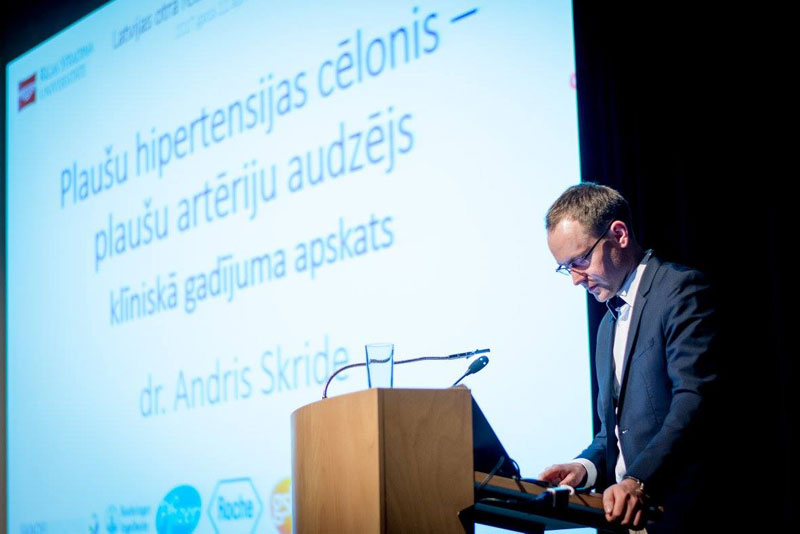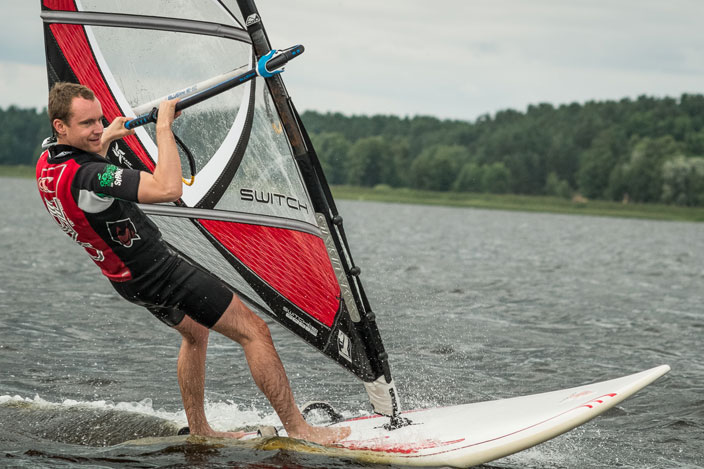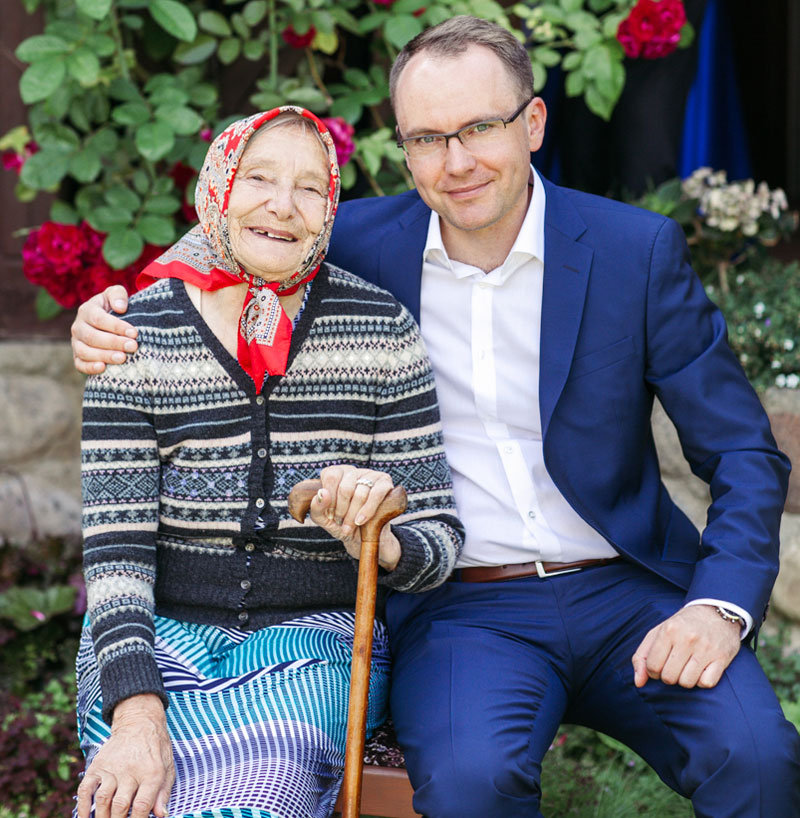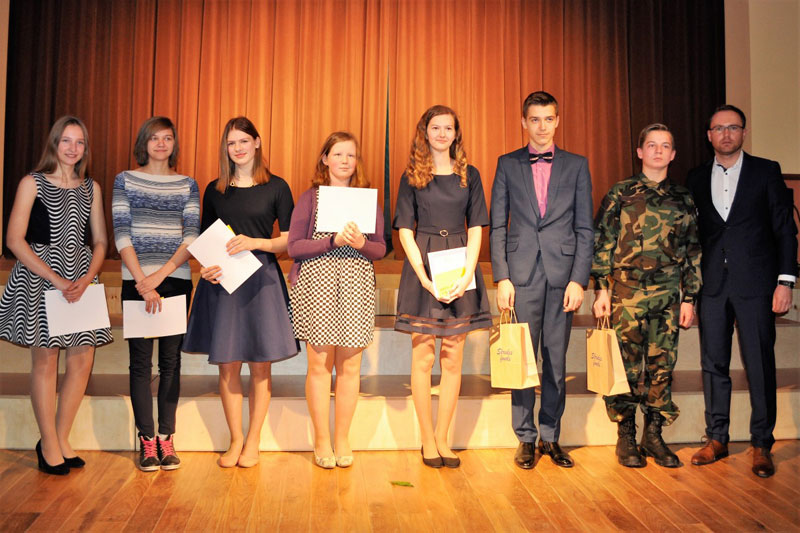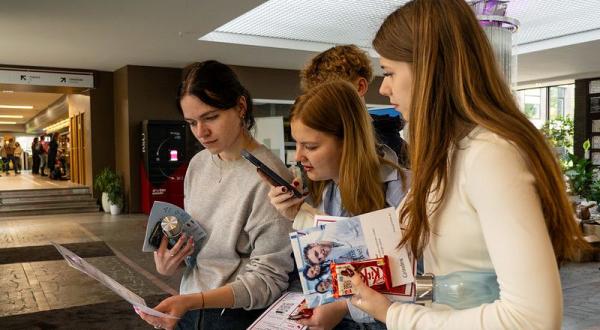Cardiologist Andris Skride – finding a balance between work and leisure
This year, the award of “Young Scientist of the Year”, awarded by the Latvian Academy of Sciences (LZA), SIA Latvijas Gāze and RTU Development Fund, went to Andris Skride, Assistant at RSU Faculty of Medicine, Department of Internal Diseases and cardiologist at Pauls Stradiņš Clinical University Hospital, who believes that the best specialists work for the university hospital.
“The work of a medical practitioner is dynamic and will never get boring. I like the absence of routine, every day bringing something different," says Andris Skride, who is not superstitious and has a firm belief in science. “There are no miracles in medicine, no matter how eager we are for them to happen at times. Medicine is governed by knowledge. If a miraculous healing happens, then there has not been any disease at all. "
As a cardiologist, Andris is worried about the unhealthy lifestyle of the Latvian people and the food we eat, the high percentage of smokers and self-treatment, led by the belief that you do not have to take the prescribed medications anymore when you start feeling slightly better. "Two years ago, the European Society of Cardiology listed Latvia as a high-risk country in terms of cardiovascular mortality, but since last year, we have been identified as a very high-risk country. That makes one think.”
Family, friends, and work are a source of joy for Andris. During the summer, he goes windsurfing, while in winter – cross-country skiing and swimming. He believes in God, if we think of God as something that embraces all the laws of physics and chemistry.
Is your job more stressful than other professions?
The level of stress in medicine is very high worldwide and medical practitioners frequently suffer from depression or burnout syndrome. If a physician does not find ways to relax, unwind, and disconnect from daily work commitments, alcohol or even drug abuse often occurs, and the suicide rate is high among medical practitioners…
Have you found a way to unwind?
I think I have. I have several hobbies. However, the most important thing is not to make work become one’s entire life. One learns it over time, though. It cannot be denied that, at the beginning of a physician's career, if you want to achieve something, at one point work will occupy a predominant part of your life, especially during residency when days and nights are spent at work. Of course, that depends also on the chosen specialisation.
Andris Skride at Lake Ķīšezers enjoying one of his hobbies - windsurfing. Photo from his private archive.
How would you describe yourself – more a physician or a researcher?
First of all, I am definitely a clinical physician. As my colleagues and former study mates point out, a successful physician. One of the most important things that I guess is impossible to teach is that a medical practitioner must be able to distinguish between the essential and the irrelevant. It may sound simple, but I have noticed that not everyone has this ability. Knowledge, empathy, emotional intelligence, the ability to see the essential, scientific approach taken - these are the things that make a physician successful. I believe that every medical practitioner working for the university hospital should be both a physician and a researcher. Our responsibility is not only to treat, but also to try to find new solutions, to look for ways to improve a patient's condition. My ideal ratio would be spending 60% of the time on clinical work, 20% on scientific work, and 20% working with students and performing administrative duties.
What is being a scientist in Latvia like? Do you feel appreciated?
Unfortunately, financial support for science is very small in Latvia. Physicians in Western Europe are able to devote far more time to science, because they receive appropriate remuneration for their research activity. In Latvia, physicians earn their living doing clinical work and devote their free time to science.
You have received an award for your contribution to research of pulmonary hypertension and development of this field in Latvia. What is pulmonary hypertension?
Pulmonary hypertension is a condition of increased blood pressure in the small circulation. This disease has more than a hundred types and affects both young and elderly people. In the past, there was no knowledge on how to treat it, so everyone dreaded it, much like the word “cancer”. Over the last decade, both in Latvia and the rest of the world, several treatment options have been discovered – 18 different specific drugs have been clinically tested, various invasive and surgical methods have been introduced in the practice. Such a progress in a medical sector is rare, however, there are still many unanswered questions and we are still unable to save many patients. We, together with colleagues, were the first to start treatment of this disease in Stradiņš Hospital ten years ago. We studied the disease, grouped the types thereof, introduced new methods of treatment, and three years ago we arranged the first lung transplantation in the history of Latvia for our patient in Vienna, among other things. We are still continuing the research of factors that influence the survival of patients with pulmonary hypertension
During the 1st Baltic Pulmonary Hypertension Conference in Riga in 2016. Andris Skride (second from the left) together with the cardiologist Ainārs Rudzītis (first from the right) and the leading specialists in pulmonary hypertension from Lithuania and Estonia. Photo from private archive.
I have been working in this field since 2007, when the possibility to treat this disease appeared in Latvia and the first drugs for the pathogenetic treatment of the disease were registered. Ten years have passed since then and the survival rate of these patients has increased significantly as compared with cohorts before the pathogenic treatment became available. We have treated many patients using the pulmonary endarterectomy, which is a very complicated pulmonary artery surgery to be performed in case of chronic thromboembolic pulmonary hypertension.
What are the topicalities in this field?
Two weeks ago in Vienna, we were conducting the first minimally invasive surgery in the Baltics on a young patient from Latvia together with the Austrian Professor Irene Lang and a team of specialists from Japan – the expansion of the pulmonary arteries using special balloons. This surgical method was introduced only two or three years ago. The professor acquired the method in Japan and is now introducing it in Europe. We are looking forward to introduce the method in Latvia in near future.
Have you ever thought of leaving Latvia to continue working abroad?
I often travel abroad – to participate in or to speak at various conferences, to gain hands-on experience in university hospitals where I can learn from other professionals. However, I have understood that I would not want to live anywhere else. Latvian nature, environment and people matter to me.
Andris Skride together with his grandmother. Photo: Kaspars Filips Dobrovoļskis
Why did you choose to study at Riga Stradiņš University back then?
Riga Stradiņš University was and still is a prestigious place to study medicine. I chose a school with a solid foundation and excellent professors. And I most certainly do not regret my chose, since the education I have obtained is very good.
I had already made a decision in the 9th grade to study medicine. I have always had an inclination towards exact sciences, and medicine is it – specific, pragmatic, and exact. Besides, a career in medicine will always be prestigious.
Another motivator to focus on medicine was probably the theory of altruistic egoism by the endocrinologist and developer of stress theory Hanse Selye which I learned about at the elementary school; this relationship code is familiar to me, in fact it is a lifestyle that brings the feeling of joy and happiness. And, of course, the Doctor of all doctors - Axel Munthe and his Story of San Michele, led me to the path of medicine. Although the world of medicine has changed, the doctor as described by Axel Munthe will always remain a role-model.
After high school I had a guaranteed study place at the Faculty of Geography and Earth Sciences (University of Latvia) since I had won the national geographic Olympiad during high school. So to speak, a safe spot had already been prepared for me, but I wanted something more prestigious. I did not tell of my intention to study medicine at home, though, as I did not want them to worry.
Your fondest memories of studies at RSU?
We were a very close-knit group and that helps in the learning process. My study mates are like a second family to me. I can admit now that we were quite mischievous. (Laughs)
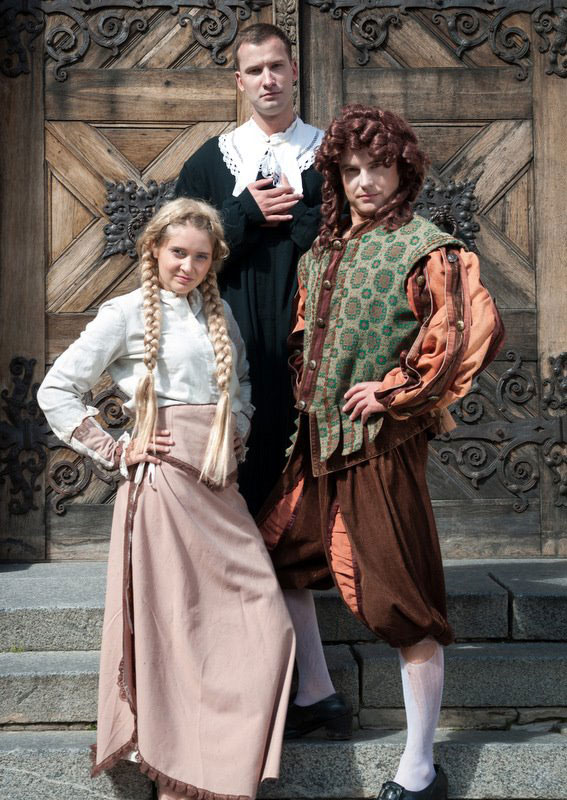 During my study years, photo series in magazines had gained huge popularity and we decided to create our own photo series. Back then, only the most advanced cellulars were equipped with a camera, so we used standard cameras, took pictures and developed photos at workshops. Thus, we came up with a scenario, played out various scenes from the life of physicians, took sequence photos, put them in an album and had something to laugh about in our free time. We were making these photo serials at every opportunity, for example, when waiting for the professor to arrive before the class we had already managed to shoot the first scenes of the series – we were rather professional in time management.
During my study years, photo series in magazines had gained huge popularity and we decided to create our own photo series. Back then, only the most advanced cellulars were equipped with a camera, so we used standard cameras, took pictures and developed photos at workshops. Thus, we came up with a scenario, played out various scenes from the life of physicians, took sequence photos, put them in an album and had something to laugh about in our free time. We were making these photo serials at every opportunity, for example, when waiting for the professor to arrive before the class we had already managed to shoot the first scenes of the series – we were rather professional in time management.
We had a group choir and I was the conductor. We also had our own theatre troupe. Some of the rehearsals were, for example, held by the physician-actor team in the territory of Stradiņš Hospital. One of the favourite sketches was from the movie Emil i Lönneberga where the commandant falls into the wolf's trap during Emil's birthday party. We acted it out dressed in white coats in the meadow where the new Stradiņš Hospital building is located. (Laughs)
I have one more hobby. Following graduation, together with my study mates and other physicians we wrote scenarios and shot five movies. The premier of each movie always takes place in the cinema on the big screen. So far, one of our most ambitious films, a historical comedy, was shot in the vicinity of Cesvaine about the history and the present of this region. The entire crew lived for a week near Cesvaine – in Graši manor – under close supervision of the director, i.e., me. We had our own stuntman for the horseback riding scenes, professional camera men, make-up artist for the actors and even a behind the scenes photograph. The majority of the historical costumes seen in the movie were rented from the Riga Film Studio. At that time there were no drones, so some of the scenes were filmed using a crane – the adrenaline was boosting when shooting these scenes. I should point out that the music was specially composed for this movie and later recorded in a sound studio. I would like to thank once again the composer Anna Veismane. I asked my cousin – the world-famous pianist Lauma Skride, to play two of the pieces in the movie. They were recorded in the sound studio of Latvijas Radio. The shooting and editing was really fun and exciting!
Who were your idols during the study years?
Professor, cardiologist Jānis Jirgensons. He impressed me with his intelligence. The professor was an outstanding physician. We treated the first pulmonary hypertension patients together.
Assoc. professor Santa Purviņa. I really enjoyed pharmacology and I have to say that I can thank Santa for my expertise in this field. I gained excellent knowledge of anatomy under the supervision of Ruta Žagare – I would like to thank her, as well.
I would like to extended my gratitude to my colleagues and friends in Austria, Poland, and the rest of the world, accompanying me through the twists and turns of medicine.
You teach cardiology to 3rd-year medicine students. What do you gain from working with youth?
Teaching is a prerequisite for continuous learning, it is a return to the fundamentals that we do not think about in our everyday practice as physicians. Students always have questions that I cannot always answer. I know a certain fact or formula, but I do not know the path to it and I have to return to the books. We, doctors, improve our knowledge through learning, as well.
What is a modern student like?
A student nowadays is certainly aware of his rights, but it will never hurt to remember the duties. They are versatile and very different. Some of them have high self-esteem while lack in self-criticism.
I think that the greatest problem students face today is the huge amount of information. Internet, text-books, various lectures, and videos are all available. It is impossible to remember everything, so students often get confused and learn nothing at the end of the day. Therefore, our task as professors is to help distinguish the essential from the irrelevant and to present a proper picture.
In general, students are curious, eager to explore, they ask questions and are very engaged. More and more students get involved in scientific activity.
Frankly speaking, in medicine, there is still so much we do not know – so, I often point out to students that they have so much to explore and discover, for example, in cardiology - the etiology of practically all diseases is still unknown, equally the pathogenesis mechanisms are unclear.
Maybe I'm old-fashioned, but I cannot accept students coming to the classroom dressed sloppily or looking untidy. One cannot go to see a patient dressed in sweatpants.
To support and promote the growth and education of young people in Latvia, Andris Skride has established the Skride Foundation. Here, on 20 December 2016, he is photographed together with students from Dzelzava Elementary School who received Ārijs Skride awards. Photo from the Skride Foundation archive
What are your plans for the future?
At present, the most important task is to defend my doctoral thesis. Work on establishment of the rare diseases centre, as well as improvement of diagnostics and treatment of rare diseases must be continued.
There is still a lot to be done for the average health indicators of Latvian people to reach somewhat closer to the average indicators of OECD countries.
Some facts about Andris Skride
RSU graduate of 2006
Assistant at Riga Stradiņš University since 2011
Cardiologist at Pauls Stradiņš Clinical University Hospital
Introduced the lung transplant procedure in Latvia
Introduced the method of pulmonary endarterectomy in Latvia
Head of pulmonary hypertension register
Since 2014, Head of the Working Group on the Right Ventricle and Pulmonary Circulation of the Latvian Centre of Cardiology
Since 2016, the Head of the Rare Disease Specialist Association of Latvia
Writing a dissertation "Assessment of hemodynamic indicators and identification of mortality risk factors in patients with pulmonary arterial hypertension and chronic thromboembolic pulmonary hypertension"
Since 2011, physician in cardiology
Since 2009, physician in internal medicine
“Internal Diseases (Cardiology)” and “Propedeutics of Internal Diseases” lecturer at RSU
Founder of the Skride Foundation
